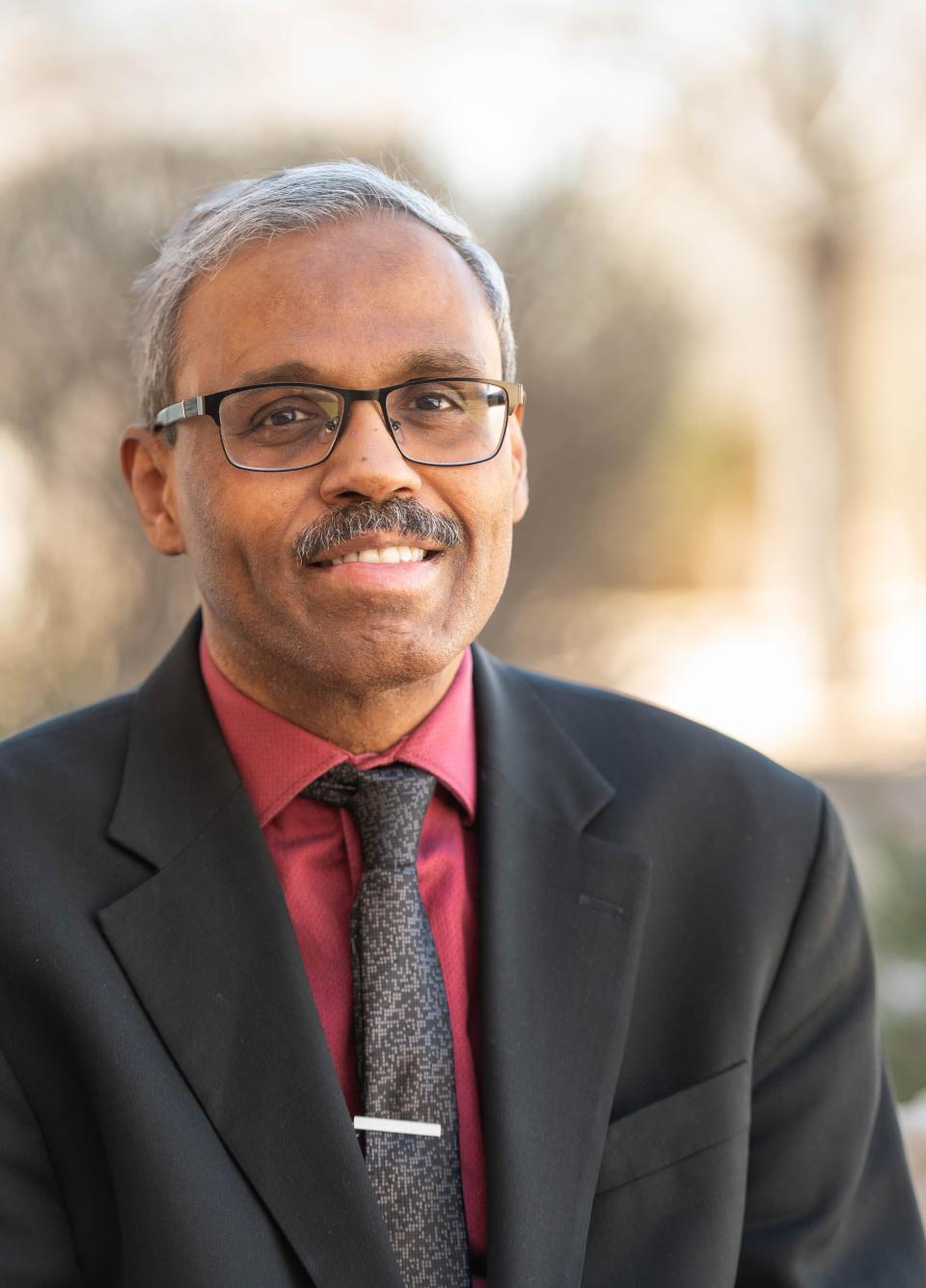NMSU prepares graduate students to be global citizens
New Mexico State University (NMSU) provides a wide range of opportunities for students to enhance their disciplinary knowledge and transferable skills in graduate education through graduate certificates, masters, specialist, and doctoral degrees from the five academic colleges. To cater to the needs of the students, graduate programs are offered through traditional, face-to-face, hybrid, and online modalities providing accessibility and substantive regular interactions and effective mentoring.
NMSU’s rich history as an Agriculture and Mechanical institute is partly reflected in the plethora of graduate programs offered in the College of Agricultural, Consumer and Environmental Science (ACES) and College of Engineering. Graduate students in ACES contribute extensively to research conducted at NMSU's Agricultural Experiment Stations.

Graduate Research Assistants are involved in projects include identifying improved strategies to optimize production of agronomic and horticultural crops, effective water management, monitoring soil health and fertilization, bioremediation, pest control, to name just a few. Likewise, in the College of Engineering, graduate students make seminal contributions in advancing new knowledge in multiple disciplines that include Aerospace, Chemical, Civil, Electrical and Computer Science, Environmental, Industrial, and Mechanical Engineering. As a representative example, graduate students in the Mechanical Engineering Department were part of a team representing NMSU at the Invent for the Planet design competition hosted by Texas A&M University. This team invented a device that could provide a creative solution to clean the Great Pacific Garbage Patch.
Graduate students in the College of Health, Education, and Social Transformation (HEST) have opportunities to be trained in programs in Clinical Mental Health Counseling, Communication Sciences and Disorder, Education, Kinesiology, Nursing, psychology, Public Health, Social Work, and Teaching. HEST graduate programs provide a pipeline of skilled individuals to meet the critical work force shortages in education, health, and social work disciplines. The HEST College is also home to a unique dual public health and social work graduate program. This dual program is only among the two along the United States-Mexico border, attracting students particularly interested in career opportunities in community outreach and international services. Such interprofessional training embedded in dual programs equip the students with disciplinary knowledge to address health disparities prevalent in NM.
The College of Business is accredited by the Association to Advance Collegiate Schools of Business (AACSB) and offers numerous programs ranging from Accountancy, Agriculture Economics and Agricultural Business, Applied Statistics, Business Administration, Economics, Marketing, and Management. The accounting and business programs meet the high standards required by AACSB, with about 6% of institutions holding this accreditation. This is a testimony to the high quality of instruction and faculty expertise available to ensure the success of students.
The College of Arts and Sciences at NMSU offers a gamut of graduate programs in humanities, natural and social sciences. Students have a wide variety of options to choose from Anthropology, Art, Astronomy, Biology, Chemistry, Communication Studies, Computer Science, Criminal Justice, English, Geography, Government, History, Language and Linguistics, Mathematics. Physics, and Psychology. As the intellectual hub of NMSU, the graduate programs in the College of Arts and Sciences build upon the foundational general education and disciplinary knowledge obtained by students at the baccalaureate level by providing life-long learning skills for NMSU students to be informed and responsible global citizens.
As a representative example, graduate students in the National Research Traineeship (NRT) Program are pursuing a team science-based approach to develop and implement new technologies using Artificial Intelligence (AI) to solve societal challenges related to arid land agriculture. This National Science Foundation (NSF) program brings Doctoral students primarily from Animal and Range Sciences, Chemistry, Computer Science, Electrical Engineering, Mathematics, Molecular Biology, Plant and Environmental Sciences, and Water Science and Management to participate in joint research projects. Such interdisciplinary graduate programs create a sense of belonging and well being to graduate students by creating an inclusive environment.
With 176 graduate program offerings, outstanding faculty, and support staff, NMSU offers a breadth of graduate programs and hence rich opportunities for individuals to obtain credentials beyond the bachelor’s degree. Graduate programs provide highly specialized knowledge and prospects to obtain certifications and licensure to practice and thereby render valuable societal service.
Advanced Degree are forecast to grow the fastest per the Bureau of Labor Statistics. A national survey of Hiring and Human Resources Managers indicates that 27% prefer hiring individuals with at least a master’s degree due to enhanced communication, productivity, innovation, and quality of work.
In this respect, NMSU seems to be a regional beacon, providing NM residents, domestic and international students with a plethora of choices to be competitive in a global economy.
The first week of April is traditionally celebrated as Graduate and Professional Student Appreciation Week in the nation. This is a week to reflect upon, acknowledge and celebrate the rich value and societal contributions of graduate students.
Ranjit T. Koodali is the Dean of the Graduate School and Associate Provost for International Affairs at New Mexico State University. He can be reached at gradinfo@nmsu.edu.
This article originally appeared on Las Cruces Sun-News: NMSU prepares graduate students to be global citizens

